AEOI compliance: understanding global reporting requirements
The Automatic Exchange of Information (AEOI) framework continues to shape how financial institutions meet their international tax reporting obligations. Whether you are a fund manager, trustee, or compliance officer of a reporting financial institution, understanding your reporting obligations is key to safeguarding your business from reputational and financial risks.
This article explores AEOI's purpose, outlines Foreign Account Tax Compliance Act (FATCA) and Common Reporting Standard (CRS) compliance requirements, and offers insights into the jurisdictional nuances and risks associated with non-compliance—especially in the British Virgin Islands (BVI) and Cayman Islands. We also highlight how Harneys Fiduciary supports clients with AEOI services tailored to their specific structures and jurisdictions.
Jump to a section:
Understanding AEOI
AEOI is a global tax transparency initiative developed by the Organisation for Economic Co-operation and Development (OECD). It enables jurisdictions to automatically exchange financial account data to combat tax evasion and improve international cooperation.
Under this framework, local tax authorities collect financial data from Reporting Financial Institutions (RFIs) and share it with other jurisdictions under bilateral or multilateral agreements. RFIs are required to identify account holders who are tax residents outside the jurisdiction and report their account details annually.
AEOI and the CRS: What you need to know
The Common Reporting Standard (CRS) is one of the key components of AEOI. Developed by the OECD, CRS sets the global standard for the automatic exchange of financial account information.
Financial institutions subject to CRS must:
- Conduct due diligence to determine account holders' tax residencies
- Identify reportable accounts
- Submit annual returns to local tax authorities
- File CRS compliance forms, even when no reportable accounts exist (nil returns)
Currently, in jurisdictions like the Cayman Islands, FATCA and CRS returns are due by 31 July and CRS Compliance Forms by 15 September each year. In the BVI, FATCA and CRS returns are due by 31 May each. Stay up-to-date with Cayman Islands and BVI compliance calendars.
FATCA and CRS compliance requirements
The FATCA is a US law that requires financial institutions outside the US to report information on financial accounts held by US taxpayers. Like CRS, FATCA requires registration, due diligence, and annual reporting.
Obligations include:
- Registration with the IRS and local authorities
- Identification and classification of account holders
- Accurate and timely annual submissions
FIs must be vigilant in validating data and maintaining internal controls to avoid fines and enforcement actions for non-compliance.
AEOI Reporting: key compliance steps for financial Institutions
Successful AEOI reporting requires a structured and proactive approach:
• Register your entity with the appropriate tax authorities
• Classify financial accounts and entities accurately
• Perform due diligence using CRS and FATCA procedures
• Identify reportable account holders which are tax residents of countries with which the BVI or Cayman has entered into bilateral or multilateral exchange of information treaties
• Submit reports through local portals such as the Cayman Department of International Tax Compliance (DITC) or BVI Financial Account Reporting System (BVIFARS)
The failure to report, misclassify an account, or miss a deadline may result in breach notices and fines.
AEOI in the Cayman Islands: localised responsibilities and deadlines
Cayman Islands financial institutions must:
- Register with the TIA via the DITC portal
- Submit annual FATCA and CRS returns
- Appoint an FATCA Responsible Officer, Principal Point of Contact, and an Authorising Person
- Ensure internal compliance frameworks meet Cayman TIA standards.
The Cayman TIA takes a proactive enforcement approach. Non-compliance can trigger penalties up to CI$1000 and regulatory scrutiny.
Harneys Fiduciary provides on-the-ground support in Cayman, including full-service AEOI and AML appointments.
Jurisdictional considerations in the BVI
BVI financial institutions are also subject to CRS and FATCA regimes. The International Tax Authority (ITA) oversees compliance. FIs must:
- Register with the ITA via the FARS portal
- Conduct tax residency self-certification
- Maintain due diligence records
- Submit accurate reports via BVIFARS
Breach notices and enforcement follow failures to submit returns or maintain a compliant audit trail.
Automatic exchange of information countries list
Over 120 jurisdictions participate in AEOI through CRS. These include:
- Cayman Islands
- British Virgin Islands
- China
- Hong Kong
- United Kingdom
- Singapore
- Switzerland
- All EU member states
For a full list, visit the OECD implementation page.
Comprehensive AEOI services: how Harneys Fiduciary supports your compliance requirements
We offer a complete range of AEOI services:
- FATCA and CRS classification, registration, due diligence, and reporting
- Ongoing regulatory monitoring
We also liaise directly with administrators and local authorities to resolve regulatory inquiries, breach notices and provide remediation plans.
Regulatory risks and the case for ongoing vigilance
With global enforcement increasing, even inadvertent errors can lead to:
- Fines and breach notices
- Disruption to fund operations
- Reputational harm
Proactive internal controls, consistent data review, and expert oversight are essential to stay compliant.
Key takeaways
- AEOI is the global standard for tax transparency
- FATCA and CRS compliance require diligence, accuracy, and punctuality
- Cayman and BVI have strict reporting frameworks and deadlines
- Harneys Fiduciary provides tailored AEOI services to reduce risk
Ready to review your AEOI framework?
Navigating the AEOI and CRS landscape requires more than ticking boxes. It demands a deep understanding of evolving requirements, careful attention to detail, and the ability to respond quickly to new guidance or enforcement action.
Whether you're looking to enhance your current reporting processes or starting from scratch, Harneys Fiduciary is here to help. Our team brings years of hands-on experience in BVI and Cayman AEOI compliance, offering practical solutions that deliver peace of mind.
Let us help you stay compliant and confident. We recommend you:
- Review your entity’s current AEOI compliance framework
- Engage our Regulatory Reporting Services team to address any gaps
- Stay informed by subscribing to our latest insights and compliance updates
Contact us to discuss your AEOI obligations.
FAQs: AEOI compliance explained
What is the difference between AEOI and CRS?
AEOI (Automatic Exchange of Information) is the overarching global tax transparency initiative developed by the OECD. CRS (Common Reporting Standard) is one of the key frameworks within AEOI, setting out how jurisdictions collect, review, and exchange financial account information on foreign tax residents.
Do Cayman or BVI financial institutions need to submit CRS nil returns?
Yes. CRS nil returns are mandatory in both the Cayman Islands and the British Virgin Islands. Even if a RFI has no reportable accounts, it must submit a CRS return indicating this. Additionally, RFIs are required to submit a separate CRS Compliance Form annually, regardless of whether there are reportable accounts. FATCA nil returns are not required in either jurisdiction; however, Harneys Fiduciary submits them voluntarily to maintain a clear and complete compliance trail.
What are the penalties for non-compliance with AEOI?
Penalties for AEOI non-compliance vary by jurisdiction and may include financial sanctions, breach notices, and increased regulatory oversight.
- In the Cayman Islands, the DITC’s Enforcement Guidelines provide for penalties ranging from CI$7,500 to CI$37,500 for entities and CI$3,000 to CI$15,000 for individuals. Daily fines of up to CI$1,000 may apply for ongoing breaches.
In the British Virgin Islands, the ITA may issue breach notices and administrative penalties. While specific fine amounts are not always publicly disclosed, enforcement actions can escalate for repeated or serious non-compliance
Can I appoint a service provider to handle AEOI obligations?
Yes. Harneys Fiduciary offers a full suite of AEOI services, including FATCA and CRS classification, registration, nil return filing, CRS Compliance Form preparation, and breach remediation. We also offer AML officer appointments and beneficial ownership contact person services to support your broader compliance framework.




